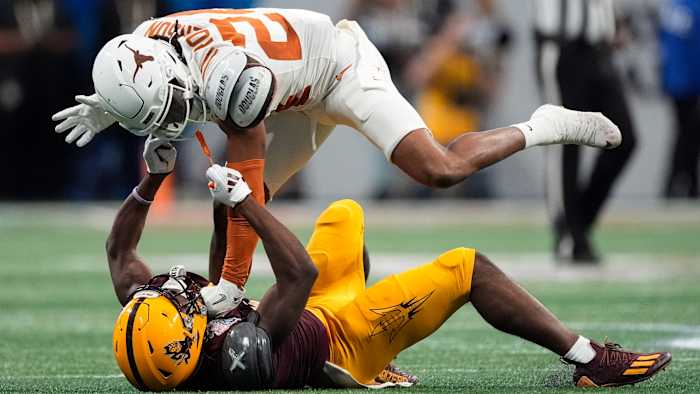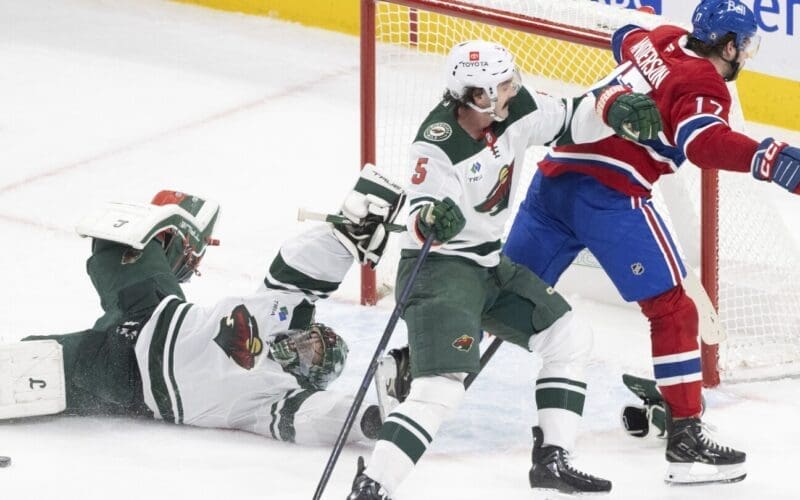In a controversial moment during the Peach Bowl, the referee’s decision not to call a targeting penalty on Texas safety Michael Taaffe has sparked debates over the clarity of the targeting rule. The incident occurred late in the fourth quarter, potentially denying Arizona State a game-winning opportunity.
The highly anticipated College Football Playoff quarterfinal between the fourth-ranked Texas Longhorns and the tenth-ranked Arizona State Sun Devils ended in dramatic fashion. Texas emerged victorious with a 39-31 win in double overtime, but not without controversy surrounding a critical officiating decision.
With 1:39 remaining in regulation and the score tied at 24, Texas missed a field goal, handing over the ball to Arizona State. Facing a third-and-15 at their own 38-yard line, Arizona State’s quarterback Sam Leavitt completed a pass to Melquan Stovall. At that moment, Texas’ Michael Taaffe delivered a hit that resulted in a helmet-to-helmet collision, leaving Stovall on the ground. However, no flag was thrown, and the game’s referee, Larry Smith, paused to review the play for potential targeting. Ultimately, he ruled there was no penalty, forcing Arizona State to punt instead of gaining a crucial first down.
Arizona State’s coach, Kenny Dillingham, was visibly frustrated by the outcome, particularly since Shamari Simmons, one of his key players, had been ejected for a similar targeting penalty in an earlier game. “I’m going to be honest, I don’t know what targeting is,” lamented Dillingham, highlighting the inconsistency in the rule’s application. Despite agreeing with player safety measures, the coach expressed his bewilderment with the enforcement of targeting penalties.
The targeting rule is designed to protect players from dangerous hits, specifically those involving the crown of the helmet. In this instance, although helmets collided, Taaffe didn’t appear to lower his head, a key factor in determining targeting. Dillingham admitted, “I just don’t quite understand it. I do want to protect the players, though. So whatever rules are put in place to protect the players, I’m all about it.”
Texas capitalized on Arizona State’s missed opportunity, maintaining momentum in overtime periods to secure their victory. The debate over the targeting decision added a layer of complexity to an already thrilling contest, with fans and analysts alike scrutinizing the rules.
As the College Football Playoff continues, the Peach Bowl incident serves as a reminder of the ongoing need for clarity and consistency in officiating critical game moments. This controversy not only affected the immediate outcome but also reignited discussions about the targeting rule’s impact on college football.
The no-call on targeting during the Peach Bowl highlighted the pressing need for clearer guidelines and consistency in officiating within college football. As debates continue, this incident underscores the challenges facing officials in balancing player safety with game integrity.
Source: News4jax














